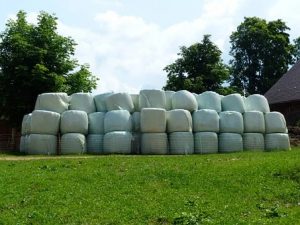The term “silage” means “leather blanket” in French. A silage maker is a person who designs, makes and sells UNIPAK silage wraps. These are made to be placed over the head of the sleeping bag (known as a “bale”) so that the bale can be kept warm by insulating the foam. This process is one that also called “bagging”. The padded pouch that the bale is stored in is then tied into a bale-shaped slip to form a beautiful, comfortable and easy to prepare breakfast or snack.
 Silage is produced on a large scale in Central America and the Caribbean areas. It is a vibrant and robust food that provides many health benefits. It has a high smoke point, as well as very little digestibility. This makes it an excellent food to eat after a long day at work or on holiday. One of the big reasons why silage wrap is so prevalent in this area is that the leaves used in making the wrappers are incredibly high. Many manufacturers will claim to have more flavour and aroma than many of the vegetables found in supermarkets.
Silage is produced on a large scale in Central America and the Caribbean areas. It is a vibrant and robust food that provides many health benefits. It has a high smoke point, as well as very little digestibility. This makes it an excellent food to eat after a long day at work or on holiday. One of the big reasons why silage wrap is so prevalent in this area is that the leaves used in making the wrappers are incredibly high. Many manufacturers will claim to have more flavour and aroma than many of the vegetables found in supermarkets.
The Central American and Caribbean area has seen an increase in this dried forage production over the past couple of decades. This has led to the rise in its demand and prices. Today it is cheaper to produce the UNIPAK silage wrap bales than ever before, leading to a rise in production.
Much of the excess farm plastic waste from the United States and other parts of the world is considered a byproduct of the food industry. The food industry produces huge amounts of plastic, but it gets chucked into the trash can instead of being recycled into something beneficial because of its low economic production. There is hope, though! The silage wrap manufacturers can turn around much of the plastic waste produced and re-use it as sheeting for mulching. This recycling of material allows them to turn plastic waste into a product that benefits the environment and reduces the amount of landfill waste produced.
Another reason this type of baled forage is so popular with farmers is that it can be purchased in volume quantities. Many farmers in Central and South America do not have access to this type of supplies when working long hours on their farms. However, once they become accustomed to producing the clear wrap and have established a production rate for it, many of these farmers can purchase larger quantities of the product that they need, allowing them to make more profits from their businesses. They can also put more money back into their communities by purchasing the extra supplies of the baled wrap they need. It is a win-win situation for both farmers and manufacturers of the UNIPAK silage wrap.